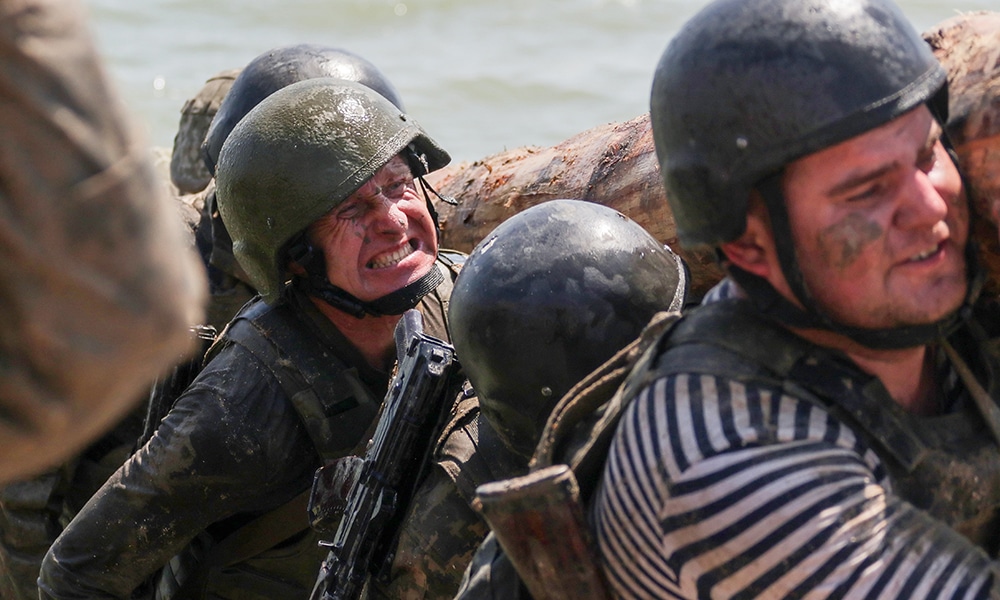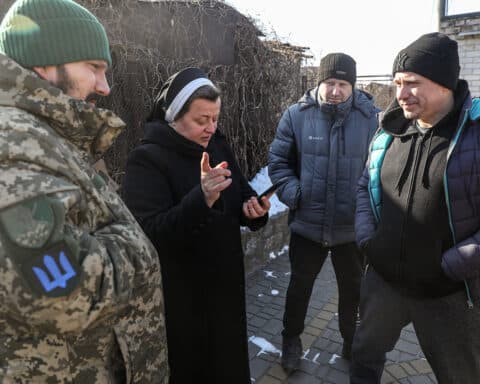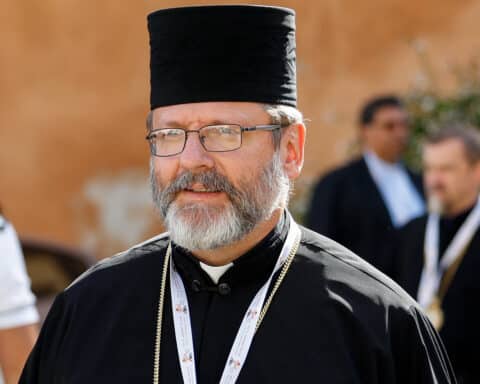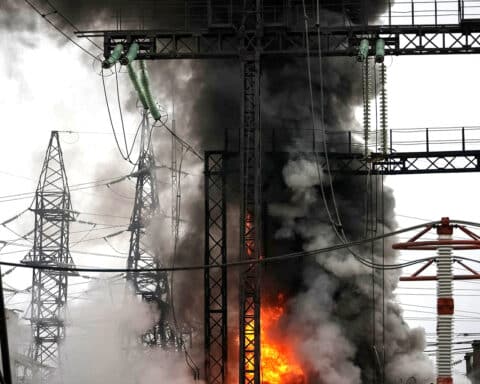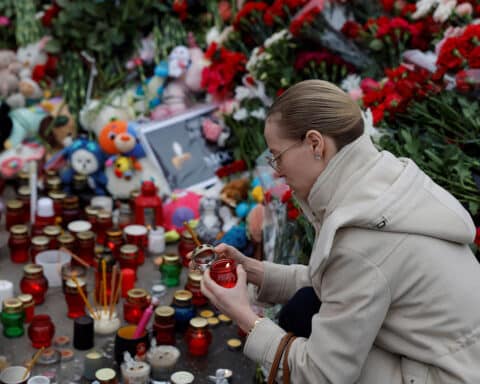When Our Sunday Visitor was invited to be part of a delegation from the U.S. Conference of Catholic Bishops to Ukraine, covering the ongoing war with Russia in that country’s eastern and southern regions was not something foremost on the minds of our editors. As it turns out, we weren’t alone in terms of western media. Upon visiting the country, Managing Editor Don Clemmer was quick to learn that Ukrainians feel that theirs is a “forgotten war” for the rest of the world.
So this week’s issue of Our Sunday Visitor continues our series of coverage from Ukraine with a look not only at the war but also at the ways in which the Church in that country is responding to the urgent pastoral needs created by that situation.
Whether encountering wounded soldiers, grieving military families or Ukrainian civilians displaced from their homes by the fighting, the Church’s attentive “field hospital” presence was abundantly clear — in providing chaplains for hospitals, sponsoring programs for families and serving an essential role in helping displaced people start again. We have sought to present the breadth of this witness in our pages.
The war itself is worth our attention as well. Archbishop Sviatoslav Shevchuk of Kiev-Halych, major archbishop of the Ukrainian Greek Catholic Church, was quick to characterize the war in terms of its global stakes — whether the world will choose to affirm the law of the powerful or the power of law, whether economic interests or the dignity of human life will prevail, whether democracy is attacked or reaffirmed as the best way to build a free country.
Pope Francis has spoken similarly about the moment the world finds itself in, and so it is hardly surprising that the pope voiced his solidarity with Ukraine in a late January visit to the Basilica of Santa Sofia and the Ukrainian Greek Catholic Church in Rome. There, in the presence of Archbishop Shevchuk, the pope said:
“I understand that, while you are here, the heart beats for your country, and not only beats of affection, but also of anguish, especially for the scourge of war and economic difficulties. I am here to tell you that I am close to you: close with your heart, close with prayer, close when I celebrate the Eucharist.”
As the pope highlights his shared communion with Ukrainian Catholics, we Catholics in the United States should remember that we too share a bond of faith with believers thousands of miles away whom we have never met. The pope has spoken of the globalization of indifference, and sadly, every crisis in the world presents a new temptation to ignore someone else’s struggle or somehow dehumanize that person.
Internally displaced Ukrainians — there are 1.5 million of them registered with the government and many more who are unregistered — shared their experience of being treated as a nuisance by their fellow countrymen, as if they were somehow the cause of the conflict within their borders when they are, in fact, among its principal victims.
Being displaced in one’s own country is a stretch for most Americans, but we do see the images of victims of hurricanes, wildfires and other disasters, and our hearts are moved. The opportunity posed by every crisis, as the pope noted in February of last year, is that “the light of the love of neighbor may illuminate the Earth with its stunning brightness.” May that light help the world to see the plight of the people of Ukraine.

